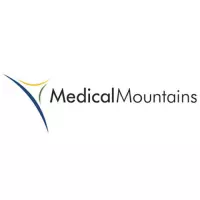Tuttlingen – The medical technology industry will still be dealing with Regulation (EU) 2023/607 by December 2028 at the latest: A MedTalk by MedicalMountains GmbH with speakers from named experts explained what the changes to the MDR transitional provisions anchored in it mean and what companies should do now job and from the industry. One piece of advice was: With MDR projects, you have to keep your foot on the gas pedal.
The timing couldn't have been better. The new regulation was published in the Official Journal of the European Union on Monday, and the next day around 60 participants attended the online event to take assessments and recommendations for action with them. MedicalMountains Managing Director Julia Steckeler already formulated a conclusion in her welcome: Even if there is a little more time to be able to keep existing products on the market even without a completed MDR transfer, the pace towards MDR must be kept high in the companies.
Especially since the new transitional provisions only apply if manufacturers have done the preparatory work. like dr Royth von Hahn (Senior Vice President Medical & Health Services (global), TÜV SÜD Product Service GmbH) explained that "the extension of the deadlines is linked to a number of conditions". Based on the expiring MDD or AIMDD certificates, a formal application must be submitted to a notified body by May 26, 2024 and a contract concluded with it before September 26, 2024 - always provided that there are no significant changes and that vigilance and other post-market requirements are in line with the MDR. The new "deadlines" are then graded according to risk classes (see info box). dr Royth von Hahn also addressed misinterpretations that had already occurred. So it is by no means an extension of MDD certificates, not a kind of "stamp" on the documents. From a purely legal point of view, these could and should “neither be changed nor reissued”. The new deadlines allowed products with an expired certificate to continue to be placed on the market if the stated conditions were met. The confirmation of this - i.e. that the MDR requirements are met by the manufacturer, an application has been made and an agreement has been concluded - comes from the notified bodies. The European association Team NB is currently working on a common format for the confirmations.
Three appeals were made by Dr. Royth von Hahn along with the participants. On the one hand, to approach the application to the notified body as early as possible and to agree with them just as early on when the assessment should begin. "It takes resources on both sides," he recalled. On the other hand, to continue ongoing MDR projects - which Karim Djamshidi was able to underline. As Vice President Global Patient Health & Regulatory Compliance at KARL STORZ SE & Co. KG, he incorporated the perspective of the industry into the MedTalk. With the new regulation, the activities are “postponed, but not canceled”. There may now be a little more time, for example for document checks or supplier management, but he advised using the new deadlines "carefully". Nothing will change in the company's further MDR timetable: "The stone is rolling." Karim Djamshidi named the challenges at international level as one of the upcoming tasks. The question of how future free sale certificates for expired MDD certificates will be issued and how authorities outside the EU will deal with the confirmations from the notified bodies had to remain open during the MedTalk. Karim Djamshidi recalled that the new regulation was drawn up against the background of ensuring the supply of existing products within Europe, while international business was not taken into account.
"The dialogue will continue," promised MedicalMountains Managing Director Julia Steckeler. There are still some open questions and structural problems to be solved - be it in relation to niche products or costs. Accordingly, the political authorities will be urged to close the other construction sites.





